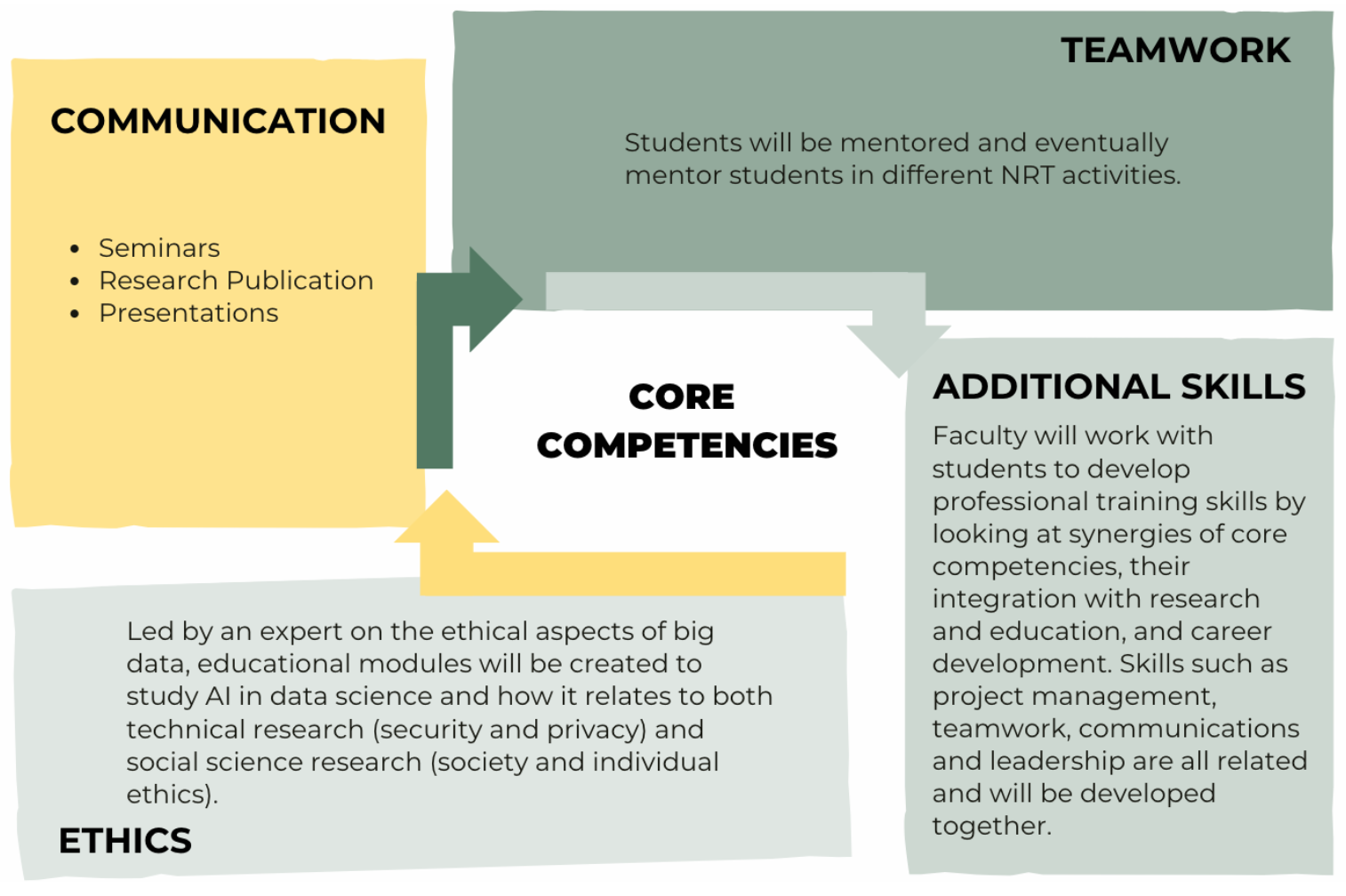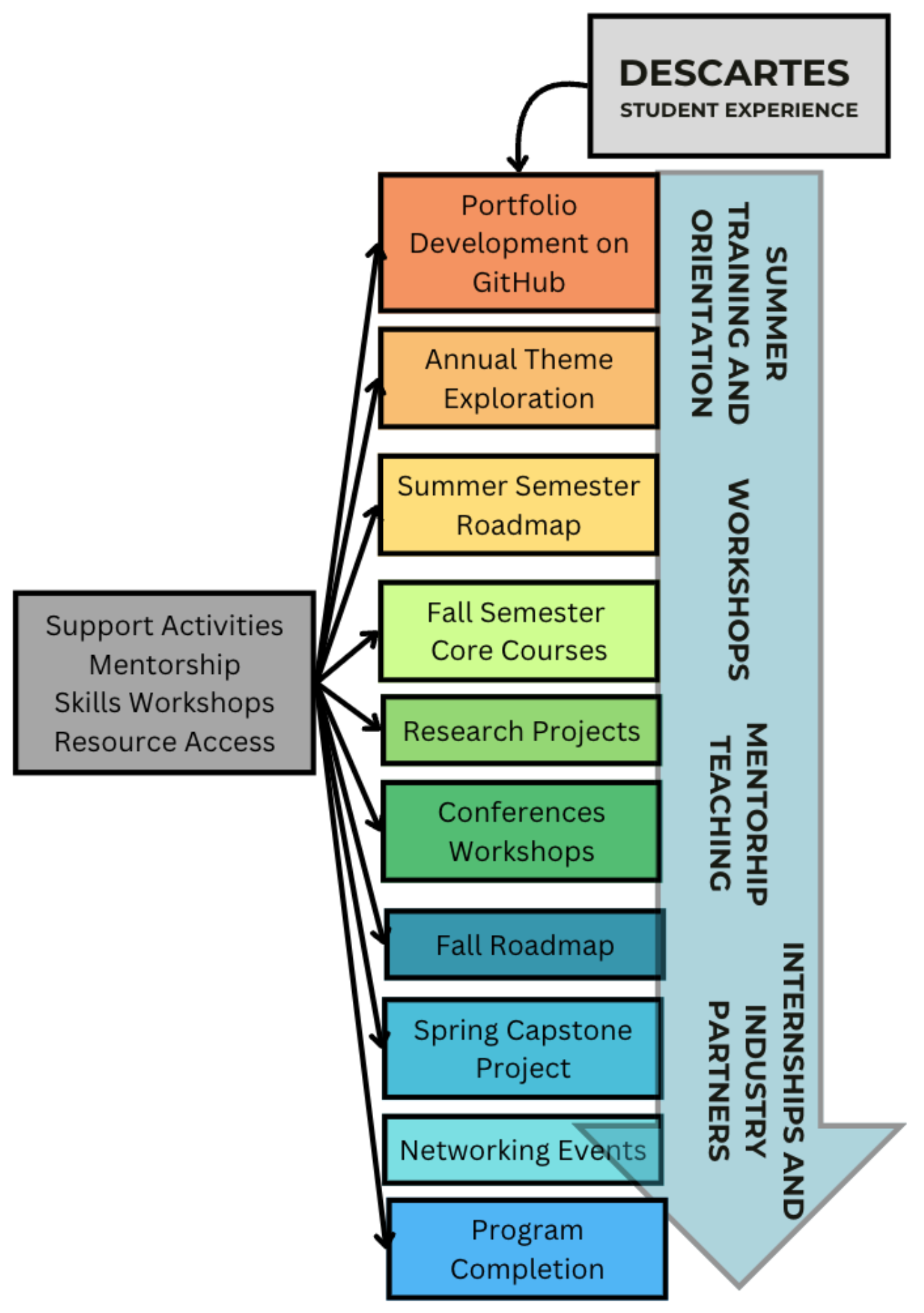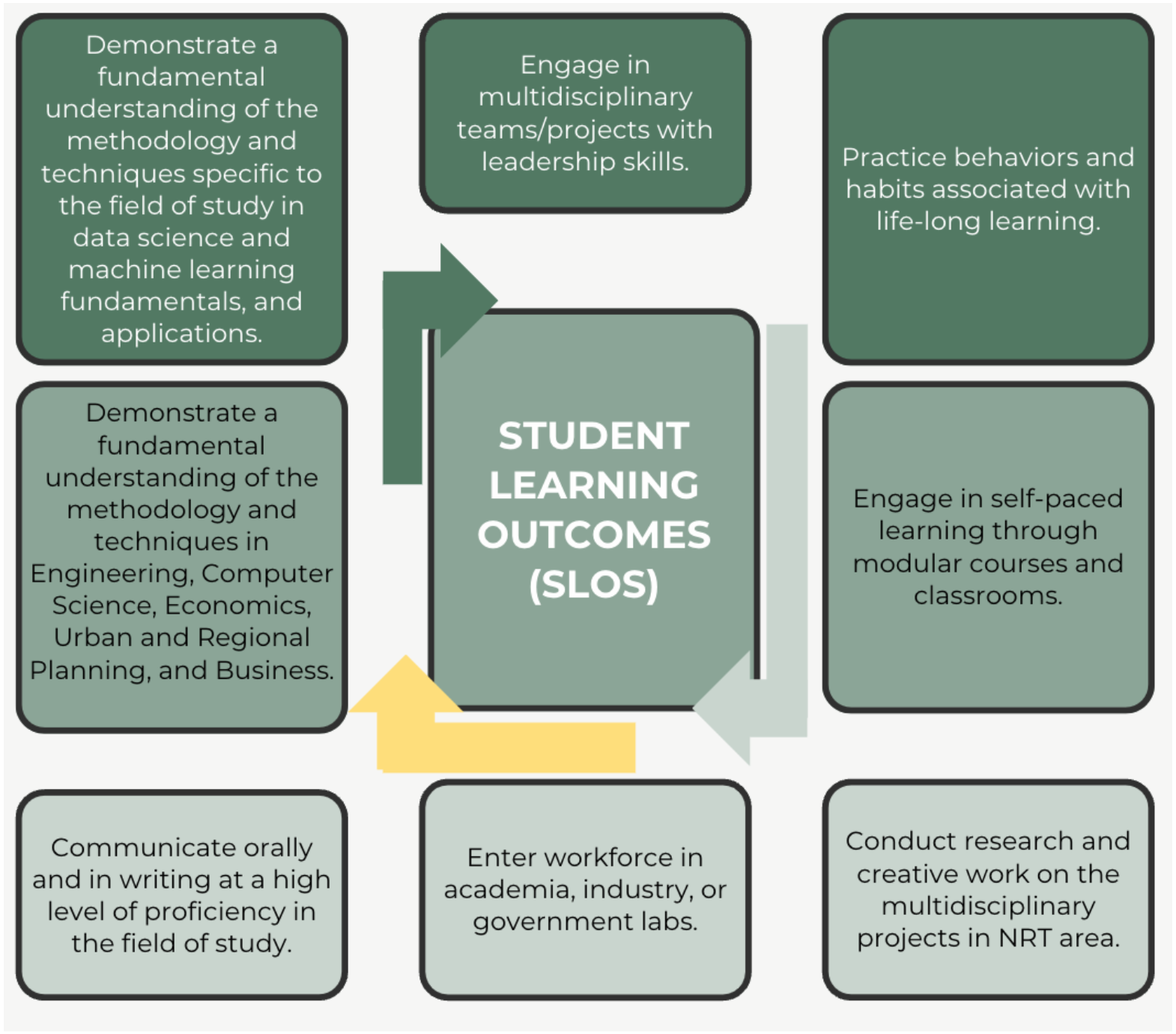Training in Data Science

DESCARTES Data Science training is motivated by national and Hawai‘i needs and the increasing diversity of careers for graduate students across various disciplines, including engineering, social sciences and computer science. Students conducting research in data science from engineering and computer science increasingly find that they enter jobs that require knowledge of economics, business, finance, public policy, and other social science disciplines. At the same time students conducting research in data science from social science increasingly find that they enter jobs that require knowledge of mathematical and quantitative approaches and understanding of engineering problems.
To accommodate students from different backgrounds and train them for the diverse careers in data science, students will obtain a T-shaped background with breadth and depth in data science. Students from an engineering, social science, or computer science background and will obtain breadth through taking core courses outside their disciplines and through a finer-grained approach to course structures through DESCARTES modules. Breadth will also be obtained through engagement in research through their cohort group, mentoring, presentations, and workshops. Students will obtain depth by taking follow-up courses (primarily in their department) to prepare them for their research.
Multidisciplinary Data Science Education and Training

The program’s main objective is to develop a convergent education and research program to train students for industry and academic careers. Students are engaged in a novel education program to obtain a broad, engaged, and enhanced series of learning experiences:
-
NRT students have access to the training module framework where the pedagogical focus shifts from the coarse granularity of courses to a finer level of modules, with each module containing approximately 1-2 weeks of teaching content.
-
NRT students build a portfolio of work to give a record of their education and research progress providing multimedia content (videos, posters, articles, software, data). A portfolio documents progress through the NRT program and is made available to NRT participants including industry.
-
Students participate in a vertically-integrated mentor process. NRT students will help teach fundamentals and applications of data science to beginning graduate and undergraduate students. This provides a valuable form of professional development in teaching, communication, and leadership skills for future research and educational careers.
-
Students participate in multidisciplinary collaborative efforts through research cohorts, shared online class materials, and extensive outreach. Students will interact with our external constituents (industry, K-12 students) through internships, outreach, mentoring activities, and giving public presentations that will enhance professional development.
-
Summer Training and Orientation: New NRT students will come from diverse backgrounds ranging from Engineering to Economics to Business to Mathematics/ Statistics to Natural Sciences, with different backgrounds and expectations with AI, Data Science, and Machine Learning. A weekend orientation program at the beginning of the school year will train new NRT students about our curriculum approach using modules and the Knowledge Map. The training will be by returning NRT students, faculty, and industry constituents. Featured with the orientation program there will be a focused one week course on Data Science and Machine Learning basics for students who are completely new to the area or want a refresher course. This will include illustrations of Machine Learning applications in Engineering. The class will be coordinated by an NRT investigator, but taught by returning NRT students.
-
Workshops: Each semester will focus on a specific research area where an NRT investigator will coordinate a seminar series in the area. We will also hold mini-workshops involving NRT investigators and external researchers. In addition, over each winter break, we will organize a 2-day workshop among all NRT students and faculty, the EAC, and the NRT evaluator to engage with the external community. The workshop will feature keynote talks from distinguished speakers from industry and academia, panels led by NRT investigators featuring key research and educational developments, a student poster session for their research, and a meeting among the EAC and the NRT investigators.
-
NRT students will participate in faculty directed data science research projects and local industry and business consulting.
